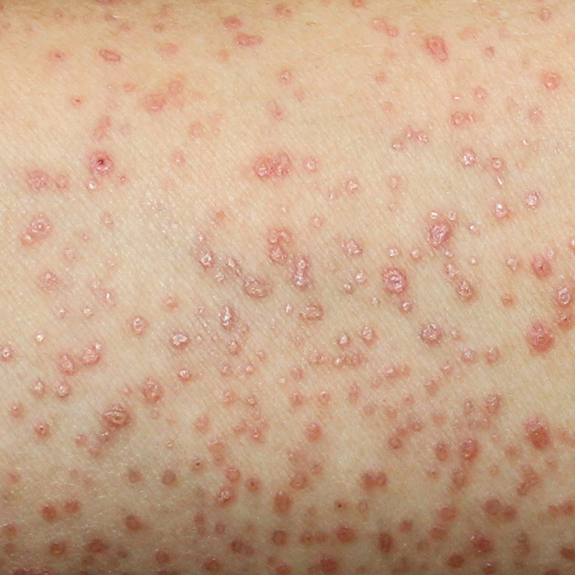Genital Dermatology: Assessment and Management
This course aims to increase clinicians’ confidence in offering genital examination and assessing normal variations or pathology. Clinicians who complete this course will be able to conduct relevant investigations, diagnose pathology, and treat or refer the patient appropriately.
Description

Cost
$300
Delivery method
- Self-paced, online
- ~4 hours duration
Who should register?
- General practitioners
- Nurse practitioners
- International medical graduates and medical students
- GP registrars
- Registered nurses
- Registered midwives
- Aboriginal and Torres Strait Islander health practitioners
Eligibility
Medical or nursing qualifications are advantageous.
Course overview
PLEASE NOTE – This course is one of seven online courses that form part of the FPAA National Certificate in Reproductive and Sexual Health for Doctors course. This course can be completed as a stand-alone course.
This course aims to upskill clinicians with evidence-based information in:
- Normal genital anatomy, including physiological variants
- Presentation and clinical consultation of common dermatological presentations
- Diagnosis, treatment, and management of common dermatological presentations
The course consists of 6 modules, which are embedded with clinical images, diagrams, case studies, and links to references and resources with a short assessment at the end of the course.
Module 1: Introduction
Module 2: Normal genital skin
- Normal genital anatomy
- Common anatomical variants and benign lesions
- Normal variations of female genitalia
- Female genital cosmetic surgery (FGCS)
- Genital pigmentation
- Other common findings
- Clinical history and examination
- Investigations
Module 3: Non-infectious conditions 1
- Atopic dermatitis
- Allergic contact dermatitis
- Lichen simplex chronicus
- Psoriasis
- Vitiligo
- Lichen sclerosus
- Plasma cell (Zoon’s) vulvitis/balanitis
Module 4: Non-infectious conditions 2
- Hidradenitis suppurativa (HS)
- Bartholin and Skene cysts
- Fixed drug eruptions (FDE)
- Behçet disease
- Stevens-Johnson syndrome (SJS) and toxic epidermal necrolysis (TEN)
- Genital Crohn’s disease
- Pemphigoid
Module 5: Premalignant and malignant anogenital conditions
- Vulval Intraepithelial Neoplasia/Squamous Intraepithelial Lesion (VIN/SIL)
- Penile Intraepithelial Neoplasia (PeIN)
- Extramammary Paget disease (EMPD)
- Anal Intraepithelial Neoplasia (AIN)
- Squamous cell carcinoma
- Melanoma
Module 6: Resources
PLEASE NOTE – This course is one of seven online courses that forms part of the FPAA National Certificate in Reproductive and Sexual Health for Doctors course. This course can be completed as a stand-alone course.
Assessment
Short assessments are included to test knowledge.
Course outcomes
Upon completion of this course, you will be able to:
1. Differentiate between normal genital anatomy (including physiological variants) and genital skin conditions that require further investigation
2. Identify premalignant conditions of the genital skin
3. Explain the natural history of premalignant genital skin conditions
4. Manage a genital skin consultation including clinical history taking and physical examination
5. Select the appropriate investigations for a range of clinical presentations, including STIs
6. Initiate appropriate management of genital dermatological conditions and know when referral is indicated
An electronic Statement of Completion will be awarded upon completion of the course.
This statement can be used to support a clinician’s annual declaration of Continuing Professional Development (CPD) hours as part of their registration requirements. Minimum CPD hours for completed training: 4
CPD information
This education is a CPD Activity under the RACGP CPD Program.

This is an accredited activity under the Australian College of Rural and Remote Medicine (ACRRM): Professional Development Program.

FAQ
1) How long do I have to complete the course?
You have 6 months from the date of registration/payment to access the course content. This is to ensure that you are accessing the most up-to-date version of the course.
2) Can I print the online content to read?
This course is delivered entirely online. True does not recommend printing this online content. There are links to further resources within the course, which may be suitable to print if necessary.
3) Do I have to complete the FPAA National Certificate in Reproductive & Sexual Health for Doctors course?
No, this is a stand-alone course that can be completed independently.
Course enquiries
Clinical Education Unit
Email: ceu@true.org.au